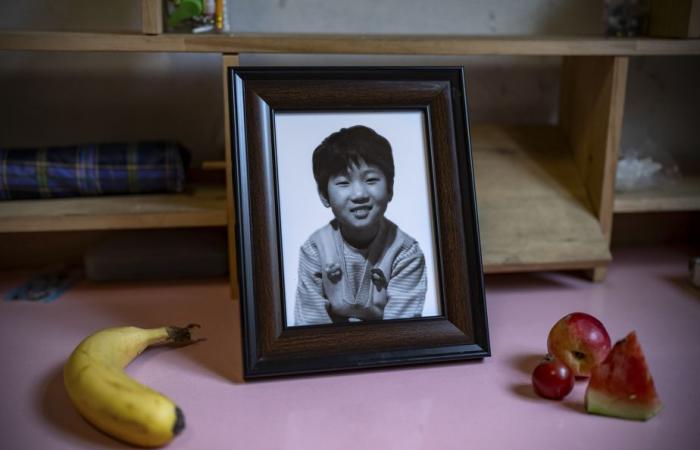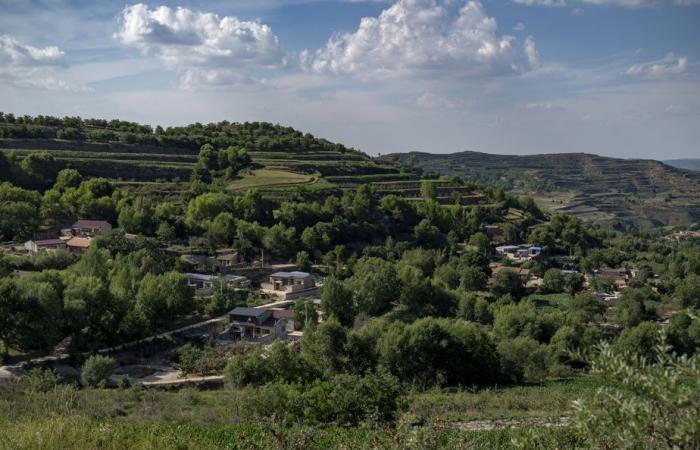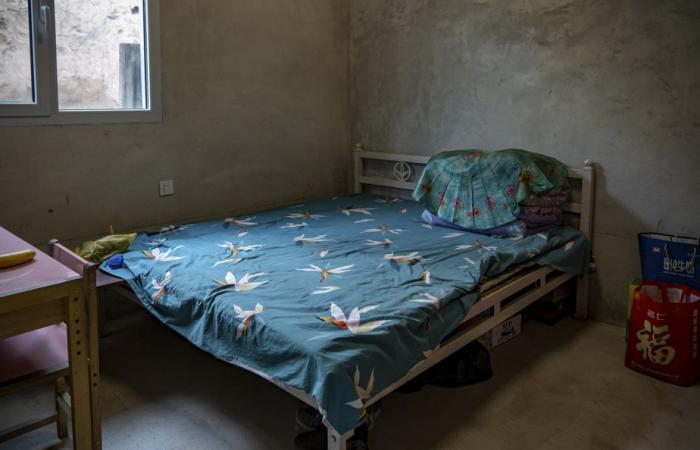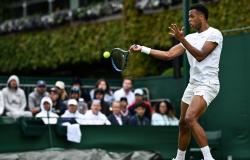(Beijing) Gong Junli has been waiting since 2022. Ever since his 8-year-old daughter Xinyue was stabbed to death, her body dumped in a wooded area in northwest China, he has been imagining the day her murderer will finally be brought to justice.
Posted at 2:02 a.m.
Updated at 5:00 a.m.
Vivian Wang
The New York Times
But delivering justice is complicated when the accused is a child.
Police say the boy who killed Xinyue was 13 at the time. His trial, which began Wednesday, is grappling with a dilemma that has gripped Chinese society: what to do with children accused of heinous crimes.
Around the world, the balance between punishment and forgiveness for children is a struggle. But the debate is raging in China, where relative leniency toward juvenile offenders contrasts sharply with the limited rights of adult defendants. The government has long favored education and rehabilitation over imprisonment. But that has changed.
High-profile murders
A series of high-profile killings by children in recent years has led many Chinese to call for greater severity. The government reacted. Xinyue’s murder is one of the first cases to go to trial since the state lowered the criminal liability for murder and other serious crimes from 14 to 12 years.
PHOTO ANDREA VERDELLI, THE NEW YORK TIMES
Gong Junli, father of the girl killed in 2022 by a 13-year-old neighbor
This year, several cases have reignited the debate, including two in central China. In January, police dropped charges against a boy accused of killing a 4-year-old girl by pushing her into a manure pit. He was under 12, so too young to be prosecuted. In March, Handan police charged three 13-year-old boys with killing a classmate in an abandoned greenhouse, where they had dug a grave.
Hashtags related to the murder attracted more than 1 billion views in one day, with lawyers and ordinary internet users calling for severe punishment, even the death penalty, for the three boys. Some say that young people are more tempted to commit crime, knowing that they cannot be punished.
A professor of criminal law, followed by 30 million subscribers on social media, accused those who seek to spare minors of “moral relativism”.
Absent parents, neglected children
But others have pointed to factors such as absent parents or poverty. Many Chinese worry that poor children in rural areas – where some high-profile cases have taken place – are being abandoned in the name of economic progress, left behind by their parents who have moved away in search of better jobs.
Under pressure from public opinion, the Supreme People’s Court issued new guidelines on juvenile delinquency in May: parents could now be held responsible for the acts committed by their children.
According to Mr. Gong, Xinyue was a sweet-tempered child who loved mangoes, strawberries and the show Paw Patrol. On September 25, 2022, her grandparents were babysitting her while Mr. Gong, a single father, worked at a construction site 100 miles away. Mr. Gong’s father called him: Xinyue was missing.
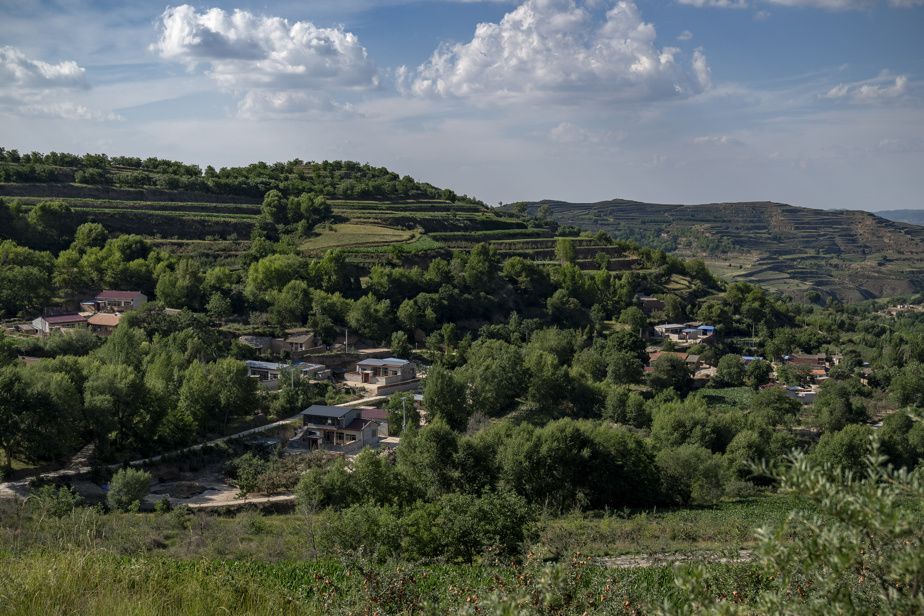
PHOTO ANDREA VERDELLI, THE NEW YORK TIMES
The village where Gong Xinyue was murdered by a minor.
Mr. Gong rushed to his home, a poor hamlet of about 40 houses nestled among terraced corn and potato fields in Gansu province. Upon arrival, Xinyue was found dead.
Police arrested a neighbor’s 13-year-old son, according to the indictment, shown to Times by Mr. Gong, the boy had begun to “hate women” because he was “dissatisfied with his mother’s disciplinary methods.”
The boy, whom Mr. Gong said he recognized but did not elaborate, had placed a knife in the grove, then led Xinyue there and stabbed her in the neck. The indictment cites physical evidence, witness testimony and the boy’s confession.
The Times tried to contact the boy’s parents, to no avail. A Chinese Communist Party media outlet, Red Star Newsquotes the child’s mother, Mme Chen. She doesn’t say whether she thinks her son killed Xinyue, but she apologizes and says she offered compensation to the Gong family.
PHOTO ANDREA VERDELLI, THE NEW YORK TIMES
Gong Junli, in front of a photo of his daughter, Gong Xinyue
Mme Chen adds that her son had been bullied and once had classmates force him to eat feces. She also admits to beating him because of his bad grades.
After the boy’s arrest, Mr. Gong expected a speedy trial and a death sentence, given the many crimes that can carry that penalty in China.
It took prosecutors a year to charge the boy. When Mr. Gong learned that the law prohibited the execution of minors, he was outraged.
The law claims to protect minors. “ [Mais] “Was the child we lost protected?” he asks.
Fairly progressive justice towards minors
China has long been seen as quite progressive when it comes to juvenile justice, more so than some Western countries, notes Anqi Shen, professor of law at Northumbria University in England.
International conventions recommend setting the age of criminal responsibility at 12. (This is the case in Canada. In the United States, the age varies by state, with most having no lower limit.) In the 1970s, China set the age at 14.
In recent years, Beijing has encouraged prosecutors to funnel juvenile offenders into educational programs or community service. Studies around the world show that jailing juveniles does little to reduce recidivism. Between 2008 and 2022, the number of juvenile convictions fell by nearly 70%.
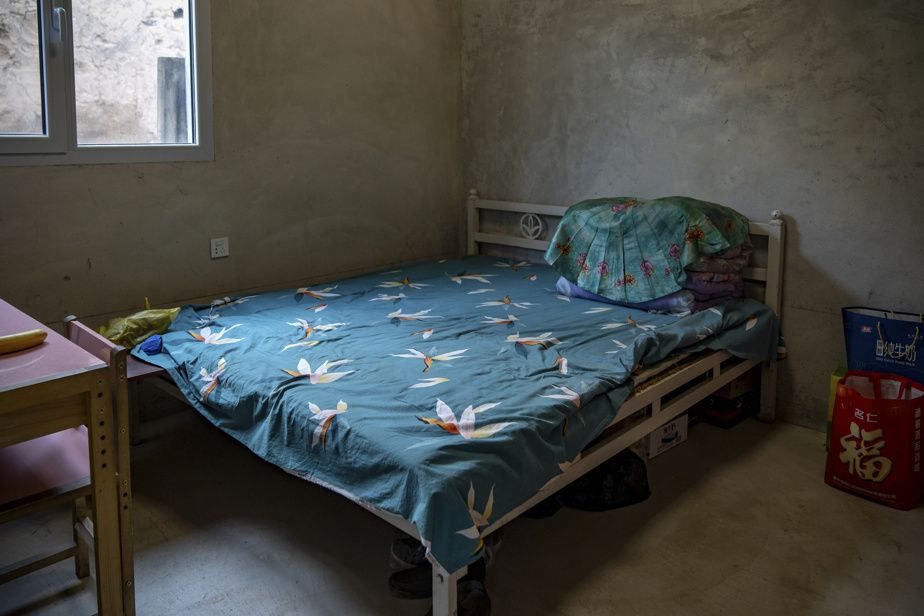
PHOTO ANDREA VERDELLI, THE NEW YORK TIMES
The empty bedroom of Gong Xinyue, murdered at the age of 8
However, dealing with minors aged 12 to 14 was even more difficult. In 2018, a 12-year-old boy was allowed to return to school a few days after killing his mother: there was no other option, according to the police, who could not charge him.
The ensuing outcry prompted the state to lower the age of criminal responsibility to 12 in 2021, said Zhang Jing, who advises the China Association for the Prevention of Juvenile Delinquency in Beijing.
But it is not certain that the juvenile crime rate is really increasing.
According to the Supreme People’s Court, 12,000 minors were sentenced in the first quarter of 2024, an 80% increase from 2023. But this could be explained by prosecutors’ tougher sentences, rather than an increase in the number of crimes committed by minors, experts said.
China does not publish statistics on arrests, and social media magnifies the effect of individual cases.
Around 70 million children left behind
The debate over punishment overshadows considerations of prevention: how can we help children who are left to their own devices and commit crimes?
According to studies, those left behind – there are about 70 million of them – are more likely to be victims of bullying or abuse, in part because they lack supervision or affection. According to state media, the three boys accused of killing a classmate in Handan were underdogs, just like the victim.
Many Chinese have responded by urging parents to return home to raise their children, or demanding that parents be held accountable if neglect is found.
PHOTO ANDREA VERDELLI, THE NEW YORK TIMES
Gong Junli shows a photo of her daughter, Gong Xinyue, who was killed in 2022.
But Zhang said in Beijing, these views ignore the root cause of parents’ exile from their children. China prohibits most children from attending schools outside their hometowns: workers cannot take their children with them.
Punishing parents does no good. Wouldn’t it be better to change the parents’ environment?
Zhang Jing, consultant for the China Association for the Prevention of Juvenile Delinquency
Mr Zhang also called for more resources for rehabilitation and prevention, such as trained police officers to deal with minors.
Mr. Gong also points out the impossible choices parents have to make. He has often been away for weeks or months because he couldn’t find work at home.
“Who doesn’t want to offer a better life to their child or family? But everyone has to do it in their own way,” he says.
This article was published in the New York Times.
Read the article from New York Times (in English; subscription required)

